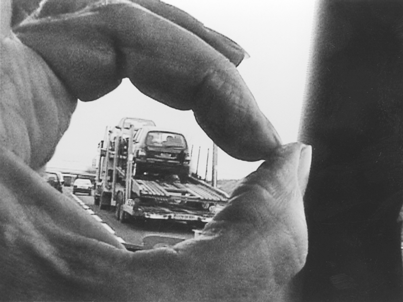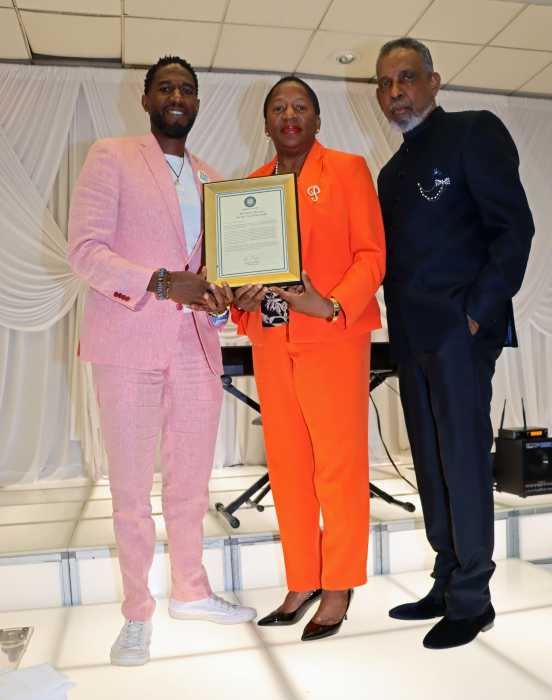The documentary influence of Chris Marker, Alain Resnais, Agnés Varda
A prelude to the Walter Reade’s annual, extremely popular “Rendez-vous with French Cinema,” “To Reality and Back” presents an eclectic array of French documentaries. Programmer Jean-Michel Frodon, the editor of “Cahiers du Cinema” magazine, includes both current and classic films, touching on three directors whose work has been central to the evolution of the documentary—and not just in France.
In the 1950s, Alain Resnais, Chris Marker, and Agnés Varda took the form to its limits. In particular, Resnais and Marker made proudly subjective films, aspiring to the quality of a literary essay and raising the voice-over to a high art. Marker’s “Le Joli Mai,” Varda’s “The Gleaners and I,” and a program of three Resnais shorts are included in “To Reality and Back,” but their influence hangs over several more recent films, especially Alain Cavalier’s video diary “Le Filmeur.”
Patricia Mazuy and Simon Reggiani’s “Basse Normandie” takes the audience behind the scenes of an unusual performance—Reggiani reciting a text based on Dostoyevsky’s “Notes From Underground” on horseback before a large audience of farmers at a Paris agricultural convention. As we discover, Reggiani has chosen to unite his passion for acting and horseback riding. Some of the film was obviously staged, unless a camera operator just happened to be hanging out with the couple at 3:45 a.m. and was able to capture them arguing. It’s never self-indulgent, however, and portrays Reggiani as hard working and disciplined. The challenges of staging his performance are many, including bruises on his vocal cords and the physical limits of his horse, but he surmounts them.
Although Mazuy’s filmography is short, her 1994 “Travolta and Me” is one of the best, most underrated French films of the ‘90s. “Basse Normandie” isn’t quite as impressive, but it manages to make hard work riveting.
“The Gleaners and I” may serve as a good entry point to Varda’s work as a whole. She certainly seems to think so, bringing up the concept of gleaning—foraging fields for post-harvest leftovers—as a metaphor for her directorial ethos. Shot on DV with a tiny crew, it’s an appealingly homemade work.
Speaking with a wit reminiscent of Marker, Varda travels around France interviewing present-day gleaners and their urban counterparts, who rummage through dumpsters and trashcans rather than the countryside. As a portrait of this varied bunch—often celebrated in French culture, in forms ranging from 19th-century painting to hip hop songs—it’s fascinating. The gleaners defy easy stereotyping. Not surprisingly, many are homeless or poor people who can only survive by finding free food. But others are middle-class anti-consumerist anarchists or artists looking for collage material. One is a gourmet chef who picks wild herbs for use in his $100 dinners.
Focusing entirely on the gleaners might have been a wise decision, since the “and I” portion of “The Gleaners and I” is more problematic. Aiming for the eclectic range of Marker’s film and video essays, Varda throws in a host of issues that crossed her mind while making it—reflections on the prehistory of cinema, the exciting possibilities of video technology—including the wonderful image of her lens cap “dancing” in front of her camera—and her own mortality.
Raymond Depardon’s entertaining documentary, “10th District Court: Judicial Hearings,” lands halfway between the rigor of Frederick Wiseman and the obfuscations of reality TV. A portrait of a few days in a French courtroom, it depicts excerpts from 25 trials. Alas, it seems designed to make the defendants look like buffoons. Granted, some would undoubtedly look bad under any circumstances, but Depardon plays their baroque excuses and petulant shows of attitude for laughs. He also encourages us to identify with the judge by cutting to her reaction when defendants are being particularly exasperating. Not surprisingly, almost all are found guilty, although we never learn the fate of the final one. (It’s a crime in France to insult a meter maid!)
Luckily, Depardon does cut deeper at times, especially in a domestic violence case and the trial of a sociologist charged with possession of a knife. The man makes a decent case that it doesn’t qualify as a weapon, although the giant chip on his shoulder doesn’t help. A double feature with “Persons of Interest,” Alison Maclean and Tobias Perse’s documentary about Arabs and Muslims unjustly imprisoned on suspicion of terrorism, would be instructive. Nevertheless, “10th District Court: Judicial Hearings” is very funny, even if I felt guilty as I laughed.
The weakest of the films I was able to preview, former Cahiers du Cinema editor Jean-Louis Comolli’s 2001 “The Sofri Affair” examines the case of Adriano Sofri, an Italian leftist activist sentenced––after nine trials––to 22 years in jail for the 1972 murder of a cop. Comolli believes he was innocent and calls on historian Carlo Ginzburg to make his case. Unfortunately, this material might be better presented in the form of a magazine article or book.
Indeed, large sections of “The Sofri Affair” consists of Ginzburg reading from his book about the trial, which he compares to the Inquisition. Historical footage is presented on a bank of TVs, but the film suffers from a tendency to rely too heavily on interviews with the historian. Yet, its brief running time isn’t long enough to provide any true historical context, although it touches on CIA involvement in framing anarchists for bombings.
gaycitynews.com



































